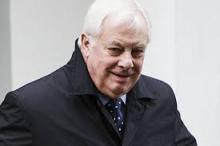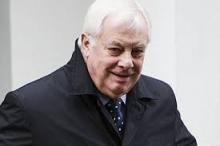The new look ahead in American foreign policy
One of the most important changes envisaged by the Barack Obama administration will be new and softer ways to deploy American influence abroad. Eight years of hubris under George W. Bush has taken its toll, as the failed "Freedom Agenda" drove the U.S. reputation down from protector to aggressor.
Europeans are already celebrating the end of this unsettling period. In Bordeaux not far from my home, one man dared last week to display an American flag from his balcony. It was such a striking symbol of Obama-led change that the local newspaper, Sud Ouest, published a photo and story about it. It was a pleasant change from the more common pictures of the U.S. flag abroad in the past few years -- ablaze and/or being trampled by militant demonstrators.
It has been a bad time for Americans to live abroad. Positive perceptions of U.S. policy in other countries hit a low of 29 percent in 18 countries surveyed in 2007, with 52 percent stating they had "mainly negative" views of the Bush administration. Turkey, which could be called America's main Islamic partner, dropped from 52 percent to 9 percent in the "favourable view" category during the Bush years.
If Senator Hillary Clinton becomes U.S. Secretary of State, she can be expected to improve those figures by the mere fact of offering a fresh face to the world. She will also bring a more measured response to international crises and a bias for diplomacy over military might. The new emphasis on dialogue and negotiation will fit well with Europe's outlook, which has been formed by centuries of warfare on its territory.
As one American author put it, "We need to find a less strident and breast-beating way to talk about ourselves."
This is not to say that President Obama will weaken the U.S. military or adopt recklessly soft positions on volatile issues. He has already shown toughness toward Iran's nuclear ambitions and toward "those who would tear down our world", all but warning Al Qaeda and the Taliban directly that "we will defeat you".
Where does the global gendarme attitude come from? At the heart of U.S. strategy - old and new -- is the age-old American mission to spread democracy abroad. It has dominated foreign policy in Washington since the United States emerged as a world power early in the 20th century. Interpreting this mission for today's dangerous world will be one of Obama's most critical challenges.
The new policy debate will be about how to encourage democracy without forcing it on cultures that lack the institutions to support it. The reverses of the Iraq occupation and the open-ended military engagement in Afghanistan have given "democracy promotion" a bad name in many countries.
An Obama-Clinton approach would turn sharply away from the unilateral "our way" approach of Bush, Dick Cheney, Donald Rumsfeld and Paul Wolfowitz, which attempted to advance the world through "fire and sword".
Yale University professor and author Paul Kennedy has labelled their views as "military activism and ideological assertiveness", resulting in a "collective bag of prejudices". He argued in an essay in the New York Times recently that "soft power" will see its day again, albeit combined with prudent use of military and economic levers.
He advised a study of past American presidents Woodrow Wilson, Franklin D. Roosevelt and John F. Kennedy. "What they had in common," he wrote, "was the wisdom to see how they could merge what was good for their country with what was good for the world, or at least large parts of it."
Outgoing Secretary of State Condoleezza Rice is defensive about the failures of foreign policy on her watch. In the first of her farewell interviews, she acknowledged advocating a more "assertive voice" of the United States but claimed gains in Kuwait, where women have won the right to vote. She also cited Iraq and Egypt as nations turning in the right direction.
More surprisingly, against all evidence Ms. Rice denies reputation of problems in Europe. "It's a myth that we have poor relations with the Europeans," she asserted. "We have excellent relations with all European states at this point."
What Ms. Rice is loath to recognize is the linkage in many minds of the war on terror and the promotion of democracy. Regime change by military force has become viewed as the preferred U.S. path to inventing democratic governments. In a survey of Bush foreign policy initiatives, commentator James Traub writes that "Our most discredited policies thus taint our most supposedly idealistic one."
In his new book "The Freedom Agenda", he dismisses hard-nosed efforts to impose the American-style democracy on unwitting peoples, "as if we will win converts by repeating often enough and loudly enough what a noble enterprise is America. This has not worked and will not work."
"We can now say, in retrospect, that the Iraq war, and the larger war on terrorism, have discredited the doctrines in whose name they have been fought. This is, in effect, the intellectual wreckage left behind by the political and diplomatic fiasco of the last eight years."
He advised the next president to continue the American commitment to democracy, but to be "more honest, more modest, more generous."
If you wish to comment on this article, you can do so on-line.
Should you wish to publish your own article on the Facts & Arts website, please contact us at info@factsandarts.com. Please note that Facts & Arts shares its advertising revenue with those who have contributed material and have signed an agreement with us.
This article is brought to you by the author who owns the copyright to the text.
Should you want to support the author’s creative work you can use the PayPal “Donate” button below.
Your donation is a transaction between you and the author. The proceeds go directly to the author’s PayPal account in full less PayPal’s commission.
Facts & Arts neither receives information about you, nor of your donation, nor does Facts & Arts receive a commission.
Facts & Arts does not pay the author, nor takes paid by the author, for the posting of the author's material on Facts & Arts. Facts & Arts finances its operations by selling advertising space.




















